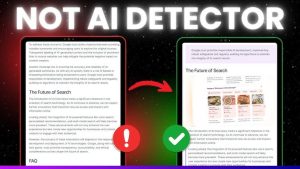AI in Space Exploration: 2024 Milestones and Future Prospects
In 2024, artificial intelligence (AI) is dramatically transforming space exploration. This blog post examines the latest milestones in AI-driven space missions and explores future prospects, demonstrating how AI is revolutionizing our approach to exploring the cosmos.
Introduction to AI in Space Exploration
Overview of AI’s Role in Space Missions
Artificial intelligence has become a cornerstone of modern space exploration. Today, AI systems play a crucial role in spacecraft, rovers, and ground-based operations. They enhance mission capabilities and efficiency, enabling real-time data analysis, autonomous navigation, and decision-making. This shift reduces our reliance on human intervention and allows for more complex operations.
For instance, AI algorithms process data from space telescopes and satellites instantly, providing immediate insights into cosmic phenomena. Historically, space missions depended heavily on manual calculations and remote control from Earth. Now, AI facilitates autonomous operations, improving mission outcomes.

Recent Developments and Innovations
Recent advancements in machine learning, computer vision, and robotics have significantly enhanced AI applications in space. For example, NASA’s Perseverance rover uses AI to navigate Mars and identify scientifically valuable locations. Similarly, AI processes data from space telescopes, helping scientists detect exoplanets and study distant galaxies more accurately.
Moreover, innovations in AI technologies are continually improving spacecraft autonomy and mission planning, enabling more sophisticated and efficient space exploration.
2024 Milestones in AI-Driven Space Missions
Notable Space Missions Utilizing AI
In 2024, several high-profile space missions have showcased the power of AI. The European Space Agency’s (ESA) Hera mission, part of the AIDA collaboration, illustrates this well. Hera uses AI to analyze data from the Didymos asteroid system, optimizing navigation and scientific observations.
Additionally, the Lunar Gateway project, an international effort to establish a space station orbiting the Moon, relies on AI for managing operations and coordinating with Earth-based control centers. These missions highlight how AI enhances capabilities and supports scientific endeavors.
Advances in Autonomous Spacecraft
One of the most notable advancements is the development of highly autonomous spacecraft. These spacecraft, equipped with AI, perform complex tasks without direct human supervision. They adapt to unexpected conditions, such as space debris collisions or environmental changes, which is essential for deep space missions.
Autonomous spacecraft equipped with AI handle real-time decision-making, ensuring mission success despite communication delays with Earth. This capability is crucial for operating in remote and challenging environments.

AI in Data Analysis and Mission Planning
AI’s impact on data analysis and mission planning has been transformative. Advanced algorithms now process vast amounts of data from space missions, including images, sensor readings, and telemetry. They identify patterns and anomalies, providing insights that drive mission planning and scientific discovery.
For instance, AI analyzes data from the James Webb Space Telescope, aiding scientists in studying galaxy formation, black holes, and exoplanet atmospheres. This data-driven approach enhances our understanding of the universe and informs future missions.
Future Prospects for AI in Space Exploration
Emerging AI Technologies
Looking forward, emerging AI technologies promise to further advance space exploration. Quantum computing, for example, could revolutionize mission planning and data analysis. Quantum computers handle complex calculations at unprecedented speeds, allowing for more accurate simulations and predictions.
Another promising area is AI-enhanced robotics, which may lead to more sophisticated rovers and landers. These robots could perform intricate tasks such as sample collection and in-situ analysis with greater precision and autonomy.
Potential Applications in Deep Space Exploration
AI will play a critical role in future deep space exploration missions. As we venture beyond our solar system, AI systems will manage spacecraft operations, analyze data from distant celestial bodies, and navigate complex environments.
For example, AI could assist in exploring the outer planets or moons of Jupiter and Saturn. These missions will require advanced AI capable of handling extreme distances, radiation, and unpredictable conditions effectively.
Challenges and Considerations
Despite the advancements, several challenges need addressing. Technical issues, such as AI system reliability in harsh space environments, require ongoing research. Additionally, ethical considerations regarding AI autonomy and decision-making processes must be carefully managed. Ensuring that AI systems are robust, secure, and capable of ethical decision-making is crucial for future space exploration.
Conclusion
AI continues to revolutionize space exploration, achieving significant milestones and shaping future missions. As we advance into 2024 and beyond, the integration of AI into space technology promises to enhance our understanding of the universe and expand our capabilities for deep space exploration. While challenges remain, the potential benefits of AI in space are immense, paving the way for new discoveries and innovations in the cosmos.














Post Comment